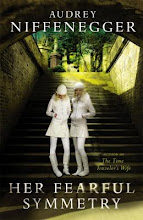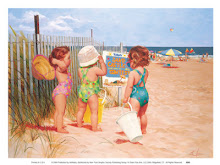 Disquiet by Julia Leigh
Disquiet by Julia Leigh121 pages
Genre: Family saga
Tone: quirky macabre
Rating: VPI (well not exactly pleasant but intriguing)
Fav lines: She shed her dress. Stepping forward, she incrementally immersed herself in the icy water, the lake close like a glove. Vile baptism.
First Line: They stood before the great gateway, all around an empty and open countryside, ugly countryside, flat mud-ploughed fields.
This book was on my RBF (recommended by friends) TBR pile, thanks to Renae for a 'you must read this'. It was an easy one to knock off the list, a read in one session read. It is, however, not at all easy to dismiss in a finished-one-move-on-to-the-next kind of way. Rather it’s one of those short stories that stay with you, hauntingly.
In such a limited word count economy is necessary so, while the words tell the story, the melancholy of a deeply flawed family is deftly evoked in the silences. The opening line sets the scene anywhere, anytime providing no context for the reader to sit comfortably and thereby, positions the reader in unsettled ‘disquiet’ which is further developed in the unnerving unravelling of the narrative. Alliteration of great gateway highlights the obstacle while emotive words, ‘empty’, ‘ugly’ and ‘flat’ set the somewhat gothic mood.
In the next couple of sentences we see the children are wearing backpacks and the woman can’t access the gate’s palm-pad entry, so we recognise a modern temporal space but the place is still unknown. After forcing an entry to her family home, breaching a secret gate in somewhat heavy-handed symbolism, the woman and her children are introduced to the readers as they are introduced to her estranged family. Olivia has returned home ‘I needed to come home’ as a prodigal but her brother returns home clearly as the favourite.
Marcus comes through the front door, bringing his obviously upset wife and their dead baby with him. Yes, that’s right I said dead baby. It seems that the pair have come from the stillbirth of their child to the family estate to mourn and bury their child – Alice. So here’s were the quirky comes in…Sophie carries Alice everywhere. In the evening they make a nice bed ‘we have to make it – comfortable’ for her in the freezer (to stave off decomp), and Sophie suckles Marcus (her husband) to deal with her unnecessary lactation.
Family, the strange and glorious things we do to one anther, is a strong theme throughout this story. Husbands and wives, brothers and sisters, mothers and children all have repeating and richly symbolic storylines. One mother has come to set her affairs in order both by reconciling with her own mother thereby securing a future for the children. As a battered wife she has given up on her own future, refers to herself as ‘murdered’ rather than preparing for suicide. As readers we are distanced from her through the device of ‘the woman’. She is only ever referred to as Olivia in conversation with other characters. As the narrator interacts with reader she is simply the woman. Her melancholy stems from the thing that cannot be mourned – her dead marriage to an abusive husband who looms ominously just out of frame.
One mother has come to bury her dead baby. This is her sadness, her misery, but her melancholy is a deeper thing. Melancholy is, by definition that which cannot be mourned and for Sophie it resides in the adultery of her husband. This ‘other’ looms large too through the intrusiveness of mobile phones and the ‘crazy lady’ on the other end of the line.
The third mother must welcome home; a daughter, broken by ill-advised choices; a son, who has a child but is not a father; grandchildren 9 and 11, whom she has never met and one who is dead. Watching them all make sense of their lives is riveting reading.









5 comments:
Interesting review. A book worth checking out.
I've heard about this book before and thought to myself that I should check it out. I didn't realize that it was such a short book. Makes it more appealing to add to my library loot .
Gotta check this out.
Wendy. Now I have to read it.
Your Fav Line and First line had me going "oh!" - like the imagery. Good review, but Lord have mercy, the story sounds morbid. Intriguing, but morbid. I'll have to think about this one.
Post a Comment